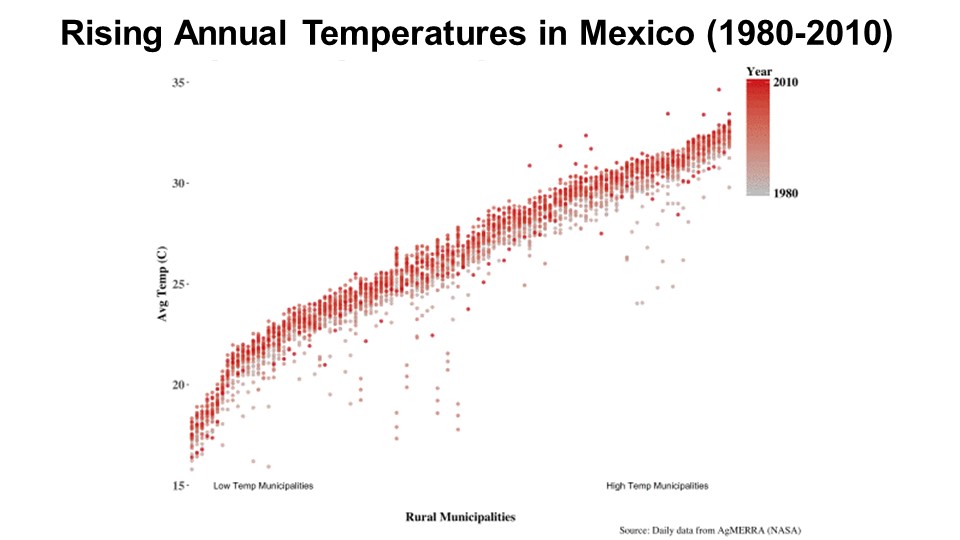Anticipatory Migration Responses to Rural Climate Shocks
- We find evidence of domestic migration that is plausibly a response to the perception of increased risks of future heat-induced reductions in crop yield.
- We interpret this as being indicative of ex ante adaptation to climate shocks, with agents learning from others about crop losses and extreme heat.
- Our analyses suggest that people also adapt to climate risk prior to the onset of destabilizing events by learning from and reacting to events affecting others.
- These findings have bearing on migration and climate change policy and on migration projections and modeling, which may not account for ex ante climate migration.
Despite increased incidence and severity of climate shocks associated with climate change, observed levels of adaptation remain low. To assess if individuals adapt to the heat-induced crop losses of neighboring households in rural, agriculturally reliant communities, we integrate panel socioeconomic and demographic data from rural Mexico with high temporal and spatial resolution weather data. We find evidence of (ex ante) domestic migration that is plausibly an anticipatory response to the perception of increased risks of future heat-induced crop losses. This study highlights the salience of anticipatory adaptation and the relevance of learning from others in the context of climate risk.

How do you apply evidence?
Take our quick four-question survey to help us curate evidence and insights that serve you.
Take our survey
